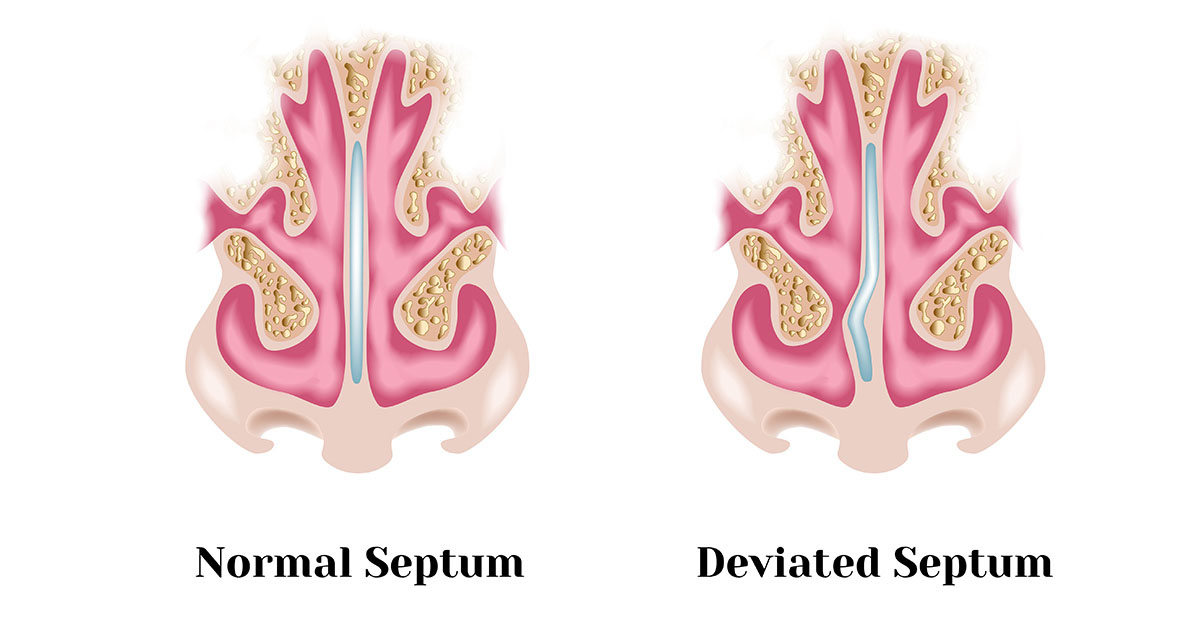
What is a Deviated Septum?
Your septum refers to the cartilage in your nose that separates your left nostril from your right nostril. For most people, the septum is centered, dividing the nostrils evenly so that each nostril is approximately the same size. When the septum is substantially uneven, a deviated septum exists.
Causes of a Deviated Septum
People are generally either born with a deviated symptom or it develop one later in life, usually as a result of a contact injury with the nose, such as from sports or a car accident. Unfortunately, deviated septums do not usually heal over time and will likely worsen with age.
Symptoms and Diagnosis of a Deviated Septum
People with a deviated septum often have little to no symptoms at all. However, if the deviation is severe, possible symptoms include the following:
- Difficulty breathing through the nose
- Sinus infections
- Dryness in the nostrils or nosebleeds
- Snoring or loud breathing
- Nasal congestion
A deviated septum can also affect a person's appearance, even if it doesn't cause any other symptoms or negatively affect breathing.
Diagnosis of a deviated septum by your ENT specialist typically involves a physical examination of your nostrils to check the placement of the septum, compare the sizes of each nostril, and analyze how it affects your breathing. You ENT specialist will also consider if the deviated septum developed at birth, due to an injury, and whether or not it leads to sleep or sinus issues.
Treatments for a Deviated Septum
Most people with deviated septums do not require treatment. Non-surgical treatment options, however, are aimed at addressing the breathing difficulty symptoms that come with deviated septums. These treatments can include the following:
- Decongestants or antihistamines
- Nasal sprays or nasal strips
If a deviated septum causes breathing issues or you merely wish to address its appearance, surgery is a common treatment method. Surgery for a deviated septum is usually performed while under anesthesia, taking about one to two hours. It involves the surgeon altering the septum and cartilage, possibly with silicone splints for added support.
Your ENT specialist will advise you on the best practices for recovering from deviated septum surgery (septoplasty). Recovery will typically involve medication to reduce pain, promote healing, and stave off infection. You'll also be encouraged to avoid contact with your nose, including impact, and blowing your nose.
Download Additional Resources
Click here to download:

